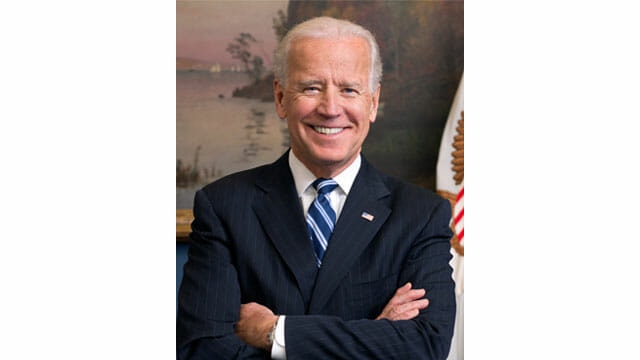Vaccine Mandate for Federal Contractors Blocked Nationwide

The Biden administration’s mandate for federal contractors’ employees to be vaccinated will be halted nationwide, amid a slew of challenges from states that say the president overstepped his authority in requiring the COVID-19 shots.
The mandate, which was set to take effect on Jan. 4, applies to roughly a quarter of the U.S. workforce and affects companies that do business with the federal government. A federal judge in Georgia blocked the mandate. The latest order follows a Kentucky federal judge’s grant of a preliminary injunction last week in a lawsuit involving Kentucky, Ohio and Tennessee. The government contractor mandate spurred a series of federal lawsuits from states seeking to block its implementation, including Arizona, Florida, Georgia, Oklahoma and Texas. They argue that the administration lacks the authority to require vaccinations and the mandates violate the U.S. Constitution.
The mandate for businesses providing services for the federal government is part of a suite of Biden administration actions designed to increase vaccination rates. That includes an emergency regulation from the U.S. Occupational Safety and Health Administration (OSHA) that covers private-sector companies with 100 employees or more, a shot requirement for healthcare companies paid by Medicare and Medicaid, and one for federal workers.
Numerous challenges to those mandates are pending in appellate courts, and the U.S. Court of Appeals for the Fifth Circuit has temporarily halted enforcement of the OSHA regulation. The Sixth Circuit is poised to consider the consolidated challenges to the OSHA rule.
The Basics about the Vaccine Mandate
Executive Order (EO) 14042, commonly called the “federal contractor vaccine mandate,” seeks to require federal contractors and subcontractors with covered contracts to:
- Require vaccination of their employees, unless they are exempt due to a medical condition, disability, or a sincerely held religious belief, practice or observance
- Comply with masking and social distancing in covered contractor workplaces
- Designate a COVID-19 workplace safety officer at covered contractor workplaces
On Nov. 30, this same mandate was blocked by another court order from a federal court in Kentucky. That decision, however, only covered employers in Kentucky, Ohio and Tennessee. Most observers felt it was just a matter of time before the same reasoning applied in the Kentucky case was used to justify a broader blockade. Sure enough, with the decision from Georgia, the mandate is blocked nationwide until further notice.
Any employer covered by the federal contractor mandate in any location across the country has been granted a temporary reprieve. The problem is that we do not know how “temporary” this reprieve will be, and how soon you may need to ramp up your compliance efforts if new life is breathed into the EO.
Additionally, it is important to keep in mind the various state or local restrictions or requirements that may apply to your workforce, including vaccine mandate restrictions, masking, social distancing and other requirements.
Therefore, you may want to take a cautious approach and perform some behind-the-scenes actions to prepare for a possible resurrected contractor vaccine mandate without unfurling major initiatives. Some steps to consider include:
- Establish a compliant written policy on vaccines and determine how you will enforce it should the EO come back online.
- Plan for how to handle temporary and long-term employee loss.
- Provide information to employees on vaccines, and their safety and effectiveness.
- Determine “how” to explain the pending court litigation and pending appeal(s), because many employees may assume that the EO rule is dead if they just glanced at headlines.
- Build a process (committee, outside providers, etc.) to evaluate requests for medical and religious accommodations.
- Recognize collective bargaining obligations if you are unionized.
This decision was issued by a single federal court judge in Georgia and could be overturned at any moment – perhaps putting you back on track to comply with the mandate by Jan. 18, 2022. For this reason, you need to monitor this litigation.
What happens next is anyone’s guess. As noted above, we could see a federal appeals court weigh in to overturn these preliminary injunctions at any moment. Given the possibility for varied rulings in different areas of the country, we could see the Multidistrict Litigation Panel once again be called upon to assign this controversy to one federal appeals court for an overall ruling as happened several weeks ago with OSHA’s mandate-or-test ETS. And, of course, a trip to the Supreme Court for an ultimate decision is not out of the question.
